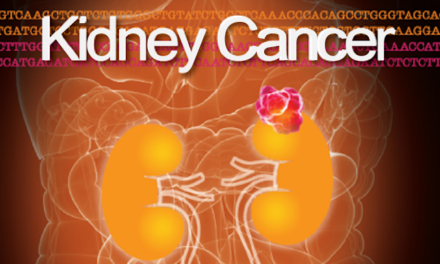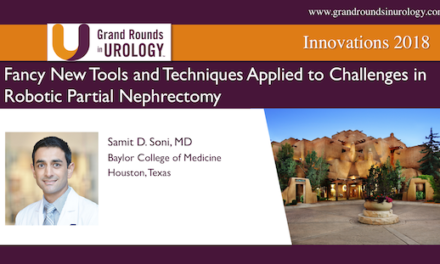Peter Schulam MD, PhD, presented “Adverse Pathologic Characteristics in the Small Renal Mass” during the Jackson Hole Seminars on February 7, 2018 in Jackson Hole, Wyoming.
How to cite: Schulam, Peter. “Adverse Pathologic Characteristics in the Small Renal Mass” February 7, 2018. Accessed Dec 2024. https://dev.grandroundsinurology.com/Adverse-Pathologic-Characteristics-in-the-Small-Renal-Mass/
Adverse Pathologic Characteristics in the Small Renal Mass
Summary:
Peter Schulam MD, PhD, emphasizes the importance of staging renal tumors based on weighted risk, including risk of metastases, histologic subtypes, and adverse pathologic characteristics, and not simply mass size. This is essential to consider when selecting patients for active surveillance or intervention.
ABOUT THE AUTHOR
Dr. Peter G. Schulam is Professor and Chair of the Department of Urology at Yale School of Medicine. He also serves as Chief of Urology at Yale New Haven Hospital and Chief Innovation and Transformation Officer of the Yale New Haven Health System. He is Faculty Director of the Tsai Center for Innovative Thinking at Yale, and Co-Founder of the Center for Biomedical Innovation and Technology.
Dr. Schulam graduated from the Medical Scientist Training Program at Baylor College of Medicine with an MD and a PhD in Immunology and completed his surgical and urologic training at Johns Hopkins Hospital in Baltimore, Maryland. Following a brief period at Baylor in Houston, he was recruited as the Chief of Minimally Invasive Surgery in the Department of Urology at UCLA. At UCLA, he developed laparoscopic and robotic surgery programs for prostate and kidney cancer. Dr. Schulam was also the Surgical Director of the Living Kidney Donor Program and performed over 1,200 laparoscopic living donor kidney procedures. At UCLA, he became the vice chair of the department and was actively involved in improving the patient experience throughout the hospital.
In January of 2012, he became the Chair of the Department of Urology at Yale. Dr. Schulam’s focus is to build a program that can offer every patient with any urologic condition state of the art diagnosis and treatment in an environment that is patient centered and is committed to listening and engaging the patient in their care.



